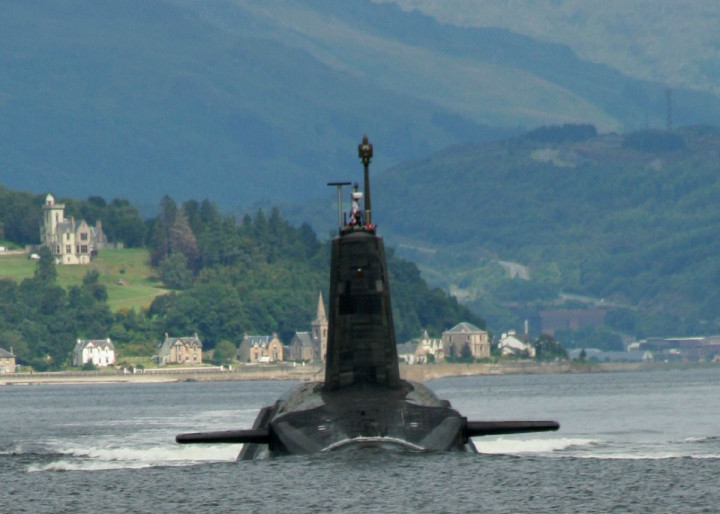By Rick Wayman
The United Kingdom presented oral arguments at the opening session of the Marshall Islands vs. United Kingdom case today at the International Court of Justice (ICJ). The Marshall Islands filed an application against the UK – and separately against each of the other eight nuclear-armed nations – at the ICJ in April 2014.
This morning’s hearing addressed preliminary objections raised by the UK. Sir Daniel Bethlehem began the arguments with a lengthy treatise about why there is no “dispute” between the United Kingdom and the Marshall Islands. According to Bethlehem, the UK was surprised that the Marshall Islands filed a case against it in 2014. He said, “The United Kingdom had thought, although naively, as it now appears, that we had a strong record on nuclear disarmament.”
The United Kingdom currently plans to spend many billions of pounds to build a new nuclear weapon system to replace its current four Trident nuclear-armed submarines. Such a weapons system would be operable well in to the 2060s.
Sir Bethlehem expressed dismay that the Marshall Islands would bring a case against the United Kingdom when it knew that the other nuclear-armed members of the Non-Proliferation Treaty (NPT) – the United States, Russia, France and China – do not accept the jurisdiction of the ICJ. A ruling by the Court against the UK in this case, Sir Bethlehem argued, could force the United Kingdom to “be the one hand clapping” for good faith nuclear disarmament negotiations among the five nuclear-armed NPT signatories.
The UK was also displeased with the fact that the Marshall Islands filed an application against it on the very day that the UK’s anti-ambush clause expired. As part of the reservation that the UK has on file with the ICJ, countries are required to be a member of the Court for a minimum of one year before bringing any case against the UK. The Marshall Islands filed its application against the UK immediately after this one-year waiting period expired. For this reason, the UK called the Marshall Islands’ application “an artificial case.”
Jessica Wells, Counsel for the UK, argued that the ICJ should not admit this case because the UK cooperates with other nuclear-armed nations on various nuclear-related issues. For example, the Mutual Defense Agreement is a bilateral treaty between the United States and UK in which both sides agree to share classified information to improve “atomic weapon design, development, and fabrication capability.” Because of this and other bilateral or multilateral arrangements, Ms. Wells argued, “a determination by the Court that the United Kingdom is in breach of its obligations to negotiate by reason of this conduct cannot be confined to the United Kingdom alone.”
The Marshall Islands will present oral arguments in the case against the United Kingdom this Friday from 3-6 pm CET. As always, the hearings will be livestreamed on the ICJ website.
Tomorrow, India will present oral arguments at the ICJ from 10 am to 1 pm.
Rick Wayman is Director of Programs at the Nuclear Age Peace Foundation, a consultant to the Republic of the Marshall Islands. He is tweeting about the ICJ hearings at @rickwayman.






